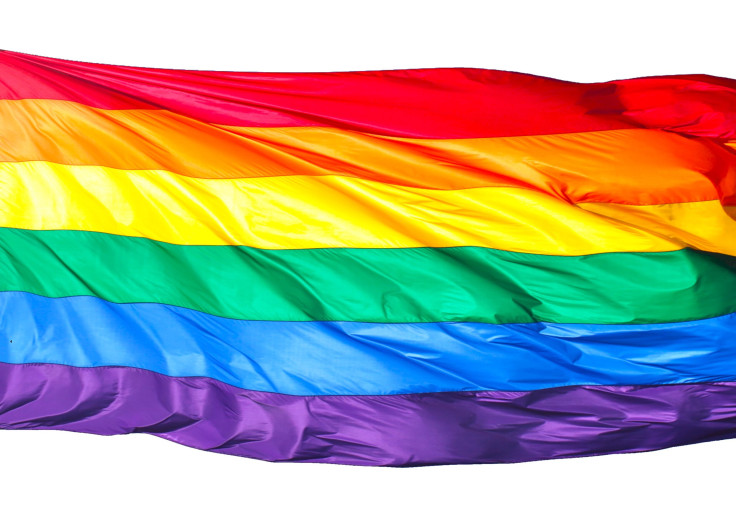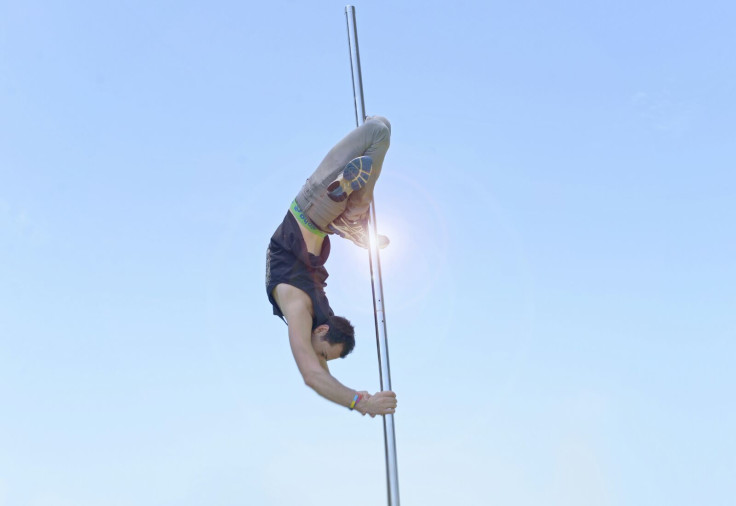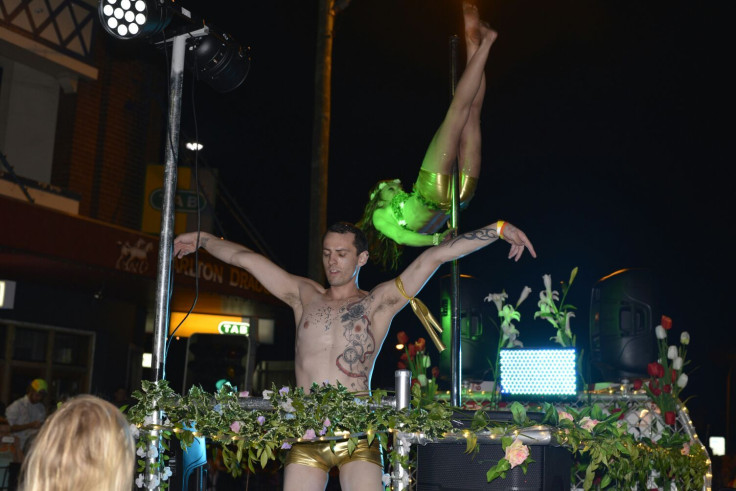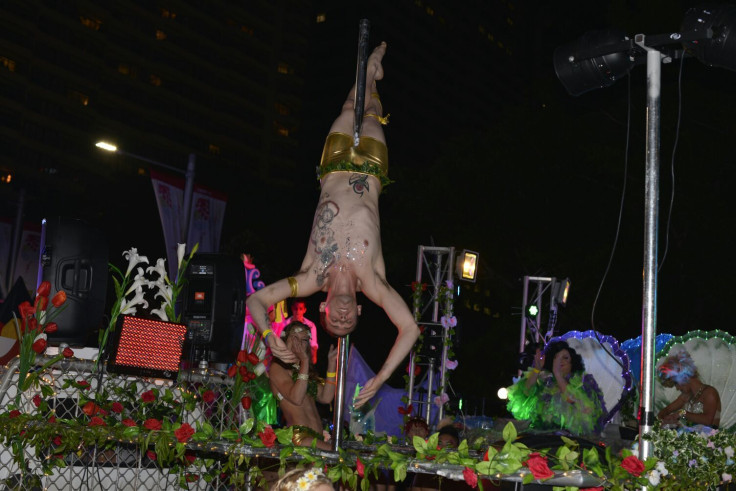‘I want to try to have a voice’: A conversation with a Sydney Mardi Gras participant and what the annual gay and lesbian parade means to him

Australia took 22 years for all its states to decriminalise homosexuality, a topic once considered a taboo by past generations. While homosexuality and gay rights appear to still be trying to find their place in Australian society, recent events over the past week as well as Saturday’s (today's) annual Mardi Gras Parade are proving that Australia is moving closer to an equal society.
While the legalisation of gay marriage continues to be debated -- which is better than no discussion at all -- the NSW Government’s decision to offer a formal apology to the original 1978 Mardi Gras protesters this past week has been a great win for the country’s LGBT community.
It’s now also easier for society to express support for their gay, lesbian, bisexual and transgendered friends and family, particularly with social media sites such as Facebook jumping on board the equality-plea, allowing users to update their Profile Pictures with pro-equality colours and symbols.
While these initiatives are positive, they don’t do much to shed light on the people at the root ofthe LGBTQI community and the suffering they may have had to endure to get to where they are today. The NSW Government’s apology, for example, definitely brought to light the injustice homosexuals faced in the 1970s, but failed to highlight the injustices that members of the LGBTQI community still have to endure today.
But the annual Gay and Lesbian Mardi Gras Festival held in Sydney each year is a story of the community’s journey, says Aaron Micallef, a pole dancer from the Illawarra Dance Studio Free2Move who participated in the last two Mardi Gras Parades and will join the Police Float at this year’s event on March 5. It is also a chance for the community and its supporters to gather proudly and unite, with over 10,500 people joining in the celebrations in 2015.
Recognising that we have to dig deeper, International Business Times Australia sat down with Micallef and asked him what the Parade means to him and how he thinks recent events like the NSW Government’s apology will affect positive change in the future.

IBT: What a crazy couple of weeks leading up to the annual Mardi Gras festival! With all the talks of a plebiscite for marriage equality, to the apology to the original protesters of the 1978 MG from the NSW Government and the SMH (and now the NSW Police), there’s been a lot going on. First and foremost though, I wanted to ask you what you thought of the Government’s apology this week?
AM: It’s a massive step … in the right direction. Obviously I wasn’t there [at the 1978 protests] at the time and I haven’t kept up to date with gay history, but having that apology, they’ve got us that one step closer to being accepted. Especially to those who have paved the way for us today, I think it will have meant a lot to them.
Do you think as a result of the past week’s turn of events, this year’s Mardi Gras parade will take on a new meaning?
I think it will. That small acceptance [the apology] to me is very similar to the apology that was given to the Aboriginal Stolen Generation a few years back. That small apology paved the way for something bigger. I think that this year, because of the apology, Mardi Gras will be different in a good way.
What does Mardi Gras mean to you?
Honestly, for me it’s that one day of the year that you can surround yourself with people like you and not get judged, or looked at and just basically be accepted.
Since I started participating in Mardi Gras and pole dancing I have started attending an LGBT community club in my home town of Wollongong, which sees members of the LGBT community in Wollongong come together once a month and enjoy ourselves whilst not having to worry about what others think of us.
Has participating in Mardi Gras changed your perception of its meaning?
I think it has. Like I said earlier, I wasn’t really aware of the issues surrounding Mardi Gras. But being a part of that parade gives you a different perspective on how far we have come and how not to be ashamed of who you are. You meet people at Mardi Gras who are exactly like you, who’ve been through the same troubles. You learn that you are not alone.

What was it that made you decide that the Mardi Gras Parade was something that you’d like to participate in, and what is it that keeps you returning?
I had actually never wanted to go in it [Mardi Gras], but my Aunt messaged me telling me that she owns one of the floats and I thought “why not?! I’m single!” So I thought I’d give it a go – try something new – and as a result, it opened up my eyes, a lot.
What makes me keep going back is that I want to try to have a voice. By going back as part of a float that has a voice makes me feel like I’m a part of something that’s trying to make the world a better place. No matter how tough times get, it will always get better, you just have to keep that little spark alive.
Recent political events aside, your participation in this year’s Mardi Gras is different to previous years. Does participating with your partner in this year’s event change the Parade for you in any way?
I think it does. Every year that I have gone has been different. My first year was all about the experience, my second year I was pole dancing with my dance teacher and this year I’ll be with my partner. I’ve never been given the chance to participate in an event like this with my partner before. Supporting him and his float makes me all giddy.

Do you think that being a part of the Police Cart will take on a new symbolic meaning for the LGBTQI community after the apology?
This is difficult, as the controversy with the police in the 1978 march was the Australian Federal Police, not the State Police – the two are completely different. However, the Mardi Gras float has police from both the State and Federal forces, so everyone is there. It symbolises unity and reinforces just how far we’ve come.
Is there anything that you wish people outside of Mardi Gras knew about the event?
There are so many different types of LGBT people out there, but we all accept each other and when we come together and it doesn’t matter who we are, or what we are, we’re all there for each other.
How do you think people could show support towards the LGBTQI community in a way that hasn’t previously been addressed?
According to the police, Mardi Gras is bigger than New Year’s Eve, which further exemplifies the support and equality [we have]. It just means so much when you consider how far we’ve come. When you think of the older generations who were beat, who lost jobs and family members, it’s because of them that we can now freely march down the street hand in hand, letting people know that we’re not going anywhere, there are more of us and it is normal.
The 2016 Sydney Gay and Lesbian Mardi Gras parade will take place on Saturday, March 5, from 7:30pm - 11:30pm on Oxford and Flinders Streets, Sydney.





















